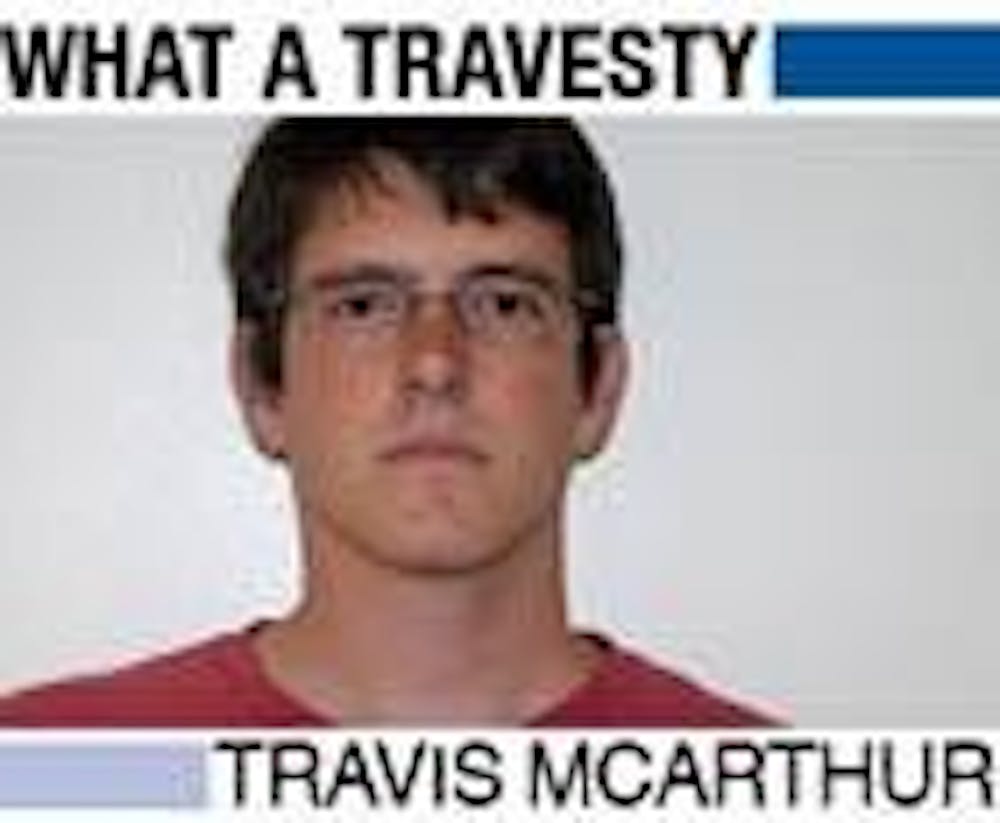The District's transportation policy is in need of review. At the same time that gas prices are touching record highs, the United States population is finally ready to make some sacrifices to reduce greenhouse gas emissions. The D.C. government should do more to encourage residents to use forms of transportation other than personal vehicles.
The first action that the government must take is to ensure that those officials that are in charge of D.C. transportation policy are in touch with the problems of commuting in the District. In 2004, The Washington Post discovered that over half of the members of the Washington Metropolitan Area Transit Authority board of directors had either never ridden a Metrobus or could not recall the last time they did. There is no doubt that the absence of the board members from the Metro system compromises their judgment of the needs of commuters.
Though the Metro board may be asleep at the wheel, the D.C. Council is trying to steer commuters toward the Metro. Two members of the Council have recently introduced legislation that would levy a tax of $25 per month on the use of private employee parking spaces. Many employers, including federal agencies, allow their employees to park in their parking garage for free. This arrangement provides an incentive for employees to forgo the Metro system and drive their cars to work. The tax would in theory encourage employees to take the Metro to avoid the tax.
The idea is good, but the proposal is flawed in its current form. Although it permits employers to pass along the cost of the tax to employees, it does not mandate it. It is likely that most employers would simply bear the cost of the tax, thwarting the intended effect of the legislation. Another problem is constitutional. Since the Supreme Court declared that "the power to tax involves the power to destroy" in 1819, state and municipal jurisdictions have been unable to levy a tax upon federal buildings. As federal agencies have a large number of these free parking spaces, the legislation may be unconstitutional.
To address these problems, the council should open lines of communication with the managers of the federal buildings. In addition, in order for the legislation to have the intended effect, it should specify that non-federal buildings must pass the tax on to drivers.
Another issue that the D.C. government should tackle is current bicycle policy. D.C.'s bike facilities are terrific if you wish to take a scenic ride on a Sunday afternoon. Our bike trails are numerous and well maintained. One who wishes to commute to work or school by bike, though, faces many obstacles. The D.C. government's own bicycle map lists many main commuting thoroughfares as having "poor" conditions for cycling, including Massachusetts, Connecticut and Wisconsin avenues.
The most important action that the D.C. government can take to promote bike commuting is to ensure that cycling is safe. Potholes are little more than an annoyance to cars, but can be catastrophic for cyclists and should be repaired more frequently. In addition, the city should cease dragging its feet on its promise to paint 15 miles of D.C. roadway with bike lanes. On a positive note, a citywide bike share program administered by BikeSmartDC will likely be operational by this summer, which will allow people who do not want to invest in their own bike the chance to commute by bike.
Though there is much room for improvement in D.C.'s transportation policy, the city has done a good job overall. For a city whose planners laid out the street in the 17th century, it's surprisingly easy to get around in D.C. Let us hope that the ease of movement remains true through the 21st century.
Travis McArthur is a senior in the School of International Service and the D.C. politics columnist for The Eagle.





